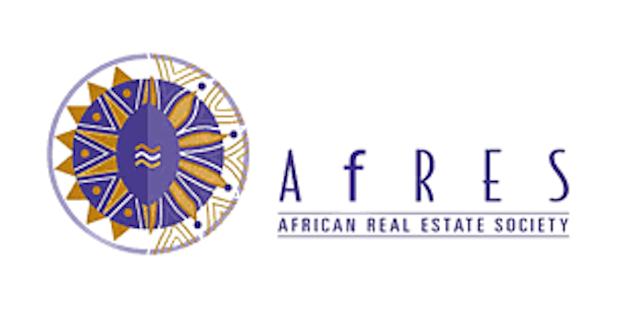The African Real Estate Society has warned that inadequate and fragmented data remains a major obstacle to housing finance, investor confidence, and sustainable growth in Nigeria’s real estate sector.
The president of the Nigerian chapter of the continental body, Adekunle Awolaja, sounded this warning at the African Real Estate Society 24th Annual Conference, which was held in Lagos recently.
According to him, at the heart of Nigeria’s housing conversation lies the issue of data, or the lack of it.
He said, “For years, the country has faced the figure of a 17 to 22 million housing deficit, first popularised under the tenure of former Minister of Works and Housing, Babatunde Fashola. Yet, stakeholders continue to question the credibility of these numbers. As one speaker pointed out, comparing a villager who is content in a modest detached house to someone living in Banana Island is misleading. The real problem is not simply a shortage of houses but the absence of context-driven, affordable housing data that reflects the realities of Nigerians across income levels.
“This absence of reliable data creates significant obstacles. Without it, funding becomes difficult, housing finance is inaccessible, and the supply chain for materials is uncertain.
In South Africa, for example, the financial system is integrated: one ATM card can access multiple banks, and nearly everyone is traceable through a unified database. This integration enables widespread credit access. Nigeria, however, remains fragmented. Multiple ATM cards, poor data traceability, and siloed systems make it difficult for individuals and businesses to build credit history. Until these gaps are addressed, investors will struggle to operate with confidence.
“The African Real Estate Society is attempting to bridge this divide by serving as a hub for collaboration among policymakers, academia, and practitioners. Through such platforms, the focus is shifting toward integration, both within Nigeria and across the African continent. The ambition goes further, extending to a global Black network, linking Africa with the Caribbean, the Americas, and beyond. For investors, the development signals the emergence of a transnational community committed to solving Africa’s housing and infrastructure challenges collectively. Nigeria’s real estate potential is vast, but the foundation must be built on reliable data, systemic integration, and context-specific solutions. With cooperation and the right structures, the country’s abundant resources and ambitious projects can translate into profitable and sustainable opportunities.”
Corroborating the above, the President of the African Real Estate Society, Omokolade Akinsomi, noted that the theme of the conference, ‘Shaping the future of the African real estate market’, speaks directly to one of the continent’s most pressing challenges: the housing deficit.
He said, “Nigeria alone faces a huge housing deficit. This crisis is not unique to Nigeria; it is a broader African and even global issue. Rising construction costs, expensive building materials, and limited funding make housing unaffordable for most citizens. High interest rates further exacerbate the challenge, as developers borrow at unsustainable costs and transfer the burden onto buyers. Addressing this requires both government intervention and creative solutions. Incentives such as land grants or subsidies could ease development costs, while public-private partnerships can introduce innovative schemes like build-to-rent housing, ensuring dignity and shelter even for those unable to buy outright.
“Drawing from South Africa’s experience, access to affordable funding is central. Mortgage systems at single-digit interest rates allow middle-class families to gradually pay for homes without crippling financial strain. In contrast, Nigeria’s double-digit rates put homeownership out of reach for most.
“Expanding funding opportunities, whether through domestic reforms or carefully structured foreign direct investment, can unlock billions in housing finance. However, this must be pursued with balance: Foreign Direct Investment should serve as a win-win arrangement that respects local regulations and ensures benefits for both investors and citizens. Ultimately, strengthening access to funding while targeting the emerging middle class with realistic, flexible housing options will be key to bridging Africa’s housing deficit.”
Meanwhile, the conference chairman, Adediran Adetunji, noted that Africa’s real estate market was marked by dynamism, driven by rapid urbanisation, population growth, rising middle-class demand, tourism, and evolving investment trends.
He asserted, “This dynamism is already evident in cities such as Lagos, Abuja, Nairobi, Johannesburg, and Accra, where foreign investments in residential, commercial, and hospitality projects continue to grow. In Lagos, the value of land in Banana Island has reached between N2.5m and N4m per square metre, underscoring both the profitability of the market and the scope for even greater opportunities yet to be unlocked. The housing deficit in Nigeria alone represents not just a challenge but a vast investment opportunity.
“Technology is also reshaping the sector. Artificial intelligence, for example, is transforming how we design, manage, and sell properties, streamlining processes and unlocking new efficiencies. However, we must remain cautious in deploying technologies we do not own, ensuring that innovation serves Africa’s long-term development interests. At the same time, governments must complement private sector efforts with critical investments in infrastructure, roads, railways, airports, and seaports, since connectivity remains a prerequisite for real estate growth and overall economic expansion.
“This conference provides a unique platform to highlight these opportunities, exchange knowledge, and foster collaboration among practitioners, policymakers, and investors from around the world. I believe that the insights, strategies, and partnerships forged here will help shape the future of the African real estate market, making it not only more profitable but also more sustainable and inclusive. On behalf of AFRES and the organising committee, I thank you for your participation and invite you to enjoy Lagos, the Centre of Excellence.”















